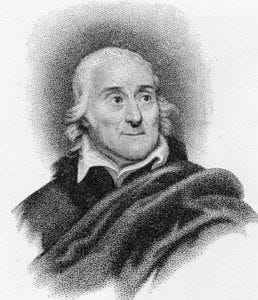Learning About Opera in the Internet Age
For opera beginners, The Marriage of Figaro is a great place to start, offering wonderful music, humor and even some lessons about life
By James Broughel
I’m someone whose interests tend not to have clear borders circumscribed around them. When I was young I had a passion for music, which led me to postpone college and move to New York to make a go at a career as a musician. However, this didn’t stop me from developing a love of economics in my mid-twenties, which ended up setting me on an altogether different and unexpected career path. Today, largely due to the economics profession’s failings to appreciate the depths and complexities of the subject it studies, I’ve developed a broader interest in art and the humanities.
For this reason, I am starting “The Autodidact's Bookshelf,” a biweekly column of essays that will appear in Discourse Magazine, which will draw readers’ attention to works in the humanities. The column will focus primarily on literature, and more specifically on classics, but from time to time will also highlight works in other areas such as art, music and film.
With that in mind, I’ve recently started taking an interest in opera. Let me preface this with the disclaimer that I am by no means an expert on this topic. I am an economist, not an opera critic. Of course, plenty of economists listen to opera, but until recently I wasn’t one of them.
However, I do have a professional connection to music: When I was in my 20s, I played bass and guitar in various rock and roll bands in New York City, and was even in a band called LEVY that was signed to a record label called One Little Indian Records. While that might qualify me to offer my opinion about the latest band to grace the cover of the New Music Express, it certainly does not make me an authority on Verdi or Wagner.
Regardless, I thought there might be others out there who, like me, have an interest in the opera but feel intimidated by its seemingly significant learning curve, and who might also be hesitant to offer their opinions out of a belief that only a certain erudite sort of person has the social standing to do so. To quelch these misconceptions, for this week’s column I thought I would offer my thoughts on “The Marriage of Figaro,” which was composed by Wolfgang Amadeus Mozart with a libretto by Lorenzo Da Ponte.
Genius. Mozart in 1782, a few years before he wrote the music for "Figaro." Image Credit: Joseph Lange/Wikimedia Commons.
“Figaro,” which was first performed in 1786 in Vienna, is considered one of the greatest operas of all time. It is based on a popular play by the French writer Pierre Beaumarchais, who also wrote an earlier play with some of the same characters, “The Barber of Seville.” The opera itself represents the work of two sublime artists at the very height of their powers. Da Ponte was, at this time, one of the most accomplished librettists in Europe, and Mozart had, in the decade leading up to the opera, matured from a charming child prodigy into a musical genius. While “Figaro” was their first collaboration, the two would go on to write two more great operas together, “Don Giovanni” and “Cosi Fan Tutte.”
A Comedy of Errors
The story takes place outside of Seville on the wedding day of a servant Figaro and his wife-to-be Susanna, both of whom live and work on the grounds of an estate owned by a wealthy count named Almaviva. Figaro and Susanna are servants of Almaviva and his wife, Countess Rosina. The count has his eye on Susanna and feels that he is entitled to bed her given his position of authority. This creates distress for Susanna, as one can imagine, and also for Rosina, who is well aware of the count’s infidelities, which go beyond his interest in Susanna. As a result, Figaro, Susanna and Rosina collude to play a trick on the count to teach him a lesson.
Lovers. The great Cecilia Bartoli and Bryn Terfel as Susanna and Figaro in a 1998 production of "Figaro." Image Credit: The Metropolitan Opera
More interesting than the plot line of the story is the manner in which events transpire over the course of a single, crazy day. Nothing goes smoothly. The story is essentially one long comedy of errors as the main characters barely escape being found out at every turn. Their scheme is hardly brilliant—the plan is to dress Rosina up as Susanna so the count seduces his own wife into having an affair with him—but once the scheme succeeds, with hindsight it looks like an act of genius. But for those watching events unfold in real time, it is an often ramshackle and improvisational affair.
Much in the opera is not as it seems. As in Shakespeare’s comedies boys dress up as women, and women dress up as other women. Marcellina, an older woman who wants Figaro to marry her to pay off a debt, turns out to be his mother. Characters often confuse or don’t realize who is hiding in a dressing room off stage, leading to humorous miscommunication and misunderstandings throughout.
One interesting theme that comes up in the opera is that of hierarchy; the scheming efforts to undermine the count turn the existing one on its head. Moreover, the count, as the man of the house, should be quite content with his wealth and position, or one would think. But it is really Figaro who is happy. He does not seem overly distressed about money, and, despite having occasional doubts about Susannah’s fidelity, he has found love.
Indeed, one has to wonder whether the whole point of the trick played on the count is to remind him how deeply he cares for his wife. In Beaumarchais’ prelude, “The Barber of Seville,” Almaviva is a hopeless romantic courting Rosina. Somehow, in “Figaro,” that version of himself has become lost, replaced by an angry and jealous man. Can this earlier version of the count ever be revived?
What is Real Wealth?
The count’s enduring jealousy of Figaro raises a familiar theme from other literature, namely the question of what real wealth is. If money is merely a means toward achieving some other end, like sex, love or status, then perhaps these other things are what make people truly wealthy in this world, not money per se.
The count feels he has a right to sex with Susanna, but she doesn’t want him in return. Another character in the opera, a young page boy, is starved for sex, but no woman will pay him any attention. Marcellina, before finding out she is Figaro’s mother, is tortured by unrequited love for the servant. Is it fair that these people cannot have the one thing they want more than anything else, while Figaro and Susanna get to live happily ever after? Are these inequities really so different from one person living in a mansion while another lives in poverty?
Each of us knows individuals like the count—people who have a lot of money or status but who are unhappy for personal reasons. Perhaps a successful husband’s wife is having an affair or simply doesn’t love him any longer. Perhaps he is estranged from his children. Perhaps he takes no pleasure in his work, so he feels empty inside.
Any of these reasons might lead a person to feel their life has not lived up to its potential, despite being a “success” by conventional standards. Almaviva would likely have given a handsome sum for a piece of Figaro’s contentment. It may be a cliché but it’s still true: Being rich or famous doesn’t spare you from feeling empty and unfulfilled—only finding a higher purpose in life can give you that. Moreover, even when someone finds happiness, there is no guarantee it will be enduring.
Wordsmith. Lorenzo Da Ponte in 1822, decades after he wrote "Figaro," when he was living in New York and teaching at Columbia University. Image Credit: Nathanial Rogers/Wikimedia Commons
There are plenty of performances of “Figaro” on YouTube (some with subtitles) and narrative summaries of the story are widely available online too, making the learning curve for this particular opera very easy. What’s more, the music in “The Marriage of Figaro” is so good it almost speaks for itself. From the opening notes one is drawn in. And the libretto is utterly charming as well.
“The Marriage of Figaro” is really an adorable and amusing opera that will have you laughing for a considerable portion of the performance and humming for the rest. As with all good comic set pieces, underneath the laughter lies deeper lessons, in this case about deception, human folly and the ethereal nature of status, wealth and sex.
For those interested in learning about opera, “The Marriage of Figaro” is a great place to start. And for those interested in learning something about life, “Figaro” offers much to consider and ponder as well.





